Steve Ballmer asks customers, partners and shareholders to believe in Microsoft
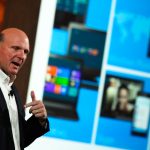
Today, Microsoft's CEO released his annual shareholder letter, which also is meant for customers, employees and partners. Steve Ballmer's looking back-peering ahead missive comes as the company stands on a precipice between the PC and cloud-connected device eras and seeks reinvention through an unusually strong late-year release cycle that includes Surface tablets, Windows 8, Windows RT and Windows Server 2012.
Under Bill Gates, Microsoft sought to put a PC on every desktop, with software innovation driving that effort. Ballmer describes post-PC Microsoft as a "devices and services company", which aptly describes the fundamental shift in progress. Services focus reminds of IBM, which dominated the mainframe era the PC displaced. This devices and services ambition "impacts how we run the company, how we develop new experiences, and how we take products to market for both consumers and businesses".
Microsoft wants you to buy Surface but won't say for how much
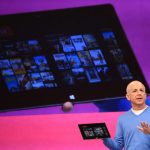
Windows 8 officially launches in three weeks, and Microsoft has sent out media invitations for an event the day before. Surface sales start at Midnight on October 26 at Microsoft retail and pop-up stores. The Redmond, Wash.-based company has a full retail store here in San Diego, and I plan to be there.
But there's something strangely missing: Surface pricing. Microsoft promotes the tablet's launch but holds back pricing information -- even as some partners release theirs. Just yesterday: Acer revealed $799.99 starting price for the Iconia W700 tablet that goes on sale the same day. Isn't it about time to break the silence?
Intel Clover Trail to make mid-range Windows 8 Pro tablets attractive
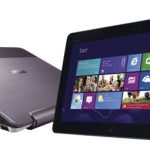
In the consumer market, Intel is best known for making chips that go into PCs of various design, and with the newly announced Intel Atom Z2760 processor, codenamed Clover Trail, the Santa Clara, California-based corporation is looking to make a dent in the mobile tablet market as well, where its presence can be considered abysmal at best.
The new Intel processor is designed to fill the gap between Windows RT-based tablets running on ARM chips and full Windows 8 Pro-based tablets on Intel Core i processors. Intel looks to be planting its Clover Trail flag in the middle ground, offering compatibility with desktop applications and improved mobility through good battery life and a compact package.
Microsoft enters the Windows 'RT era'

I'm having one of those "duh" moments this afternoon, actually it started in the AM. Gartner analysts today profess the obvious: Windows 8 is a gamble, but one Microsoft must make to stay relevant. Really? Like we haven't said similarly here at BetaNews, and others elsewhere, for months. Given, the only good news today seems to be iPhone 5, and we're all so tired here of promoting Apple's Jesus Phone (could the Second Coming really get this much press), anything Windows 8 is welcome.
Something more: Gartner analysts finally go on record clearly stating that the post-PC era -- what I call the cloud-connected device era -- is here; not coming someday, but upon us now. Well, the transition phase anyway. That's worth putting on record for your reference and our future stories.
5 reasons why Microsoft Surface will struggle
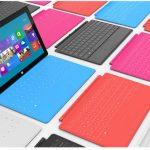
What? You're looking for iPhone 5 stories, since it launches today. I want to break with the pack, and write about something else. Shocking, isn't it? Windows tablets is worthy topic.
While you can expect many different Windows 8 or RT tablets next month, Microsoft's own Surface is the trailblazer. I've got some concerns, which apply to other tabs running the new OS -- five big barriers I think Surface will face at launch.
Windows 8 tablets are the right post-PC response

Microsoft is taking a considerable risk with the Windows 8 ecosystem and major push into the post-PC era. There is no room for error and to get it right all the parts must work in perfect harmony. Windows 8 faces stiff competition and must dismount all preconceptions it's a weak tablet operating system.
Microsoft enters the market fully prepared to take its opponents head-on. Instead of copying adversaries, the company takes the more mature approach of offering a different user experience. Every competitor should fear Windows 8 tablets, and I've got five reasons why.
Has Microsoft lost the tablet war before it begins?
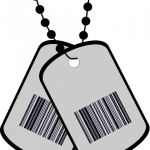
Asus' Windows 8 tablet roadmap leaked a few days ago, revealing the company's intention to launch three tablets powered by Microsoft's soon to be released Windows 8 operating system. Bloggers and journalists have used the roadmap to argue that the pricing is too high to compete effectively against Apple iPads and Android tablets. Taken aside that the pricing may not be final, it seems like they are right, if you only compare price and nothing else.
Asus' entry model, the Vivo Tab RT, for instance, lists with a starting price of $599. That's $100 more than Apple's cheapest new iPad model, and $300 more than Google's Nexus 7 tablet. But can you really make that comparison?
Steve Ballmer hints at Microsoft Surface costing $300-$800
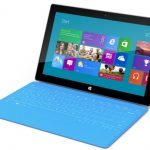
Rumors of a $199 Microsoft Surface RT tablet popped up on the Web a month ago, feeding the idea of a cheap and even subsidized Microsoft tablet that would take the pricing war to any device from the Google Nexus 7 to Apple's new iPad. In an interview for The Seattle Times, Microsoft CEO Steve Ballmer mentioned a new price range for the the company's Windows 8 device, putting the previous rumors of a $199 Microsoft tablet to rest.
Even though Microsoft did not announce the pricing, when asked about Surface, Steve Ballmer said that it would go for "probably $300 to about $700 or $800," giving a rough estimate of what potential buyers should expect to pay for the much discussed tablet. The previous rumors might be dust in the wind after the latest "estimate," but at the same time it calls for speculation justified by the $500 difference which isn't unsubstantial to say the least.
Price will determine Windows RT's success or failure

Windows 8, or more precisely Windows RT, marks a re-entry into the tablet market. Since Spring 2010, the Redmond, Wash.-based company watched Apple become the dominant segment player with iPad. In October, Windows-based tablets will push into a category Microsoft pioneered a decade ago but ceded to an upstart. Price will mean everything.
Two years ago, Windows didn't support low-cost but efficient ARM hardware, which put Microsoft and its hardware partners at a disadvantage price-wise. Since, Microsoft worked diligently to change this in Windows 8, and early development snapshots, previews and information showed touch support and other features usually only found in tablet devices. The changes come at the cost of Windows' traditional user base, which criticizes Microsoft for integrating features that desktop users did not feel comfortable with. All versions of Windows 8 come with improved touch and tablet features, but devices running Windows RT will compete head to head with Apple and Google in the tablet market. That is, if the price is right.
Windows 8 is a compelling story
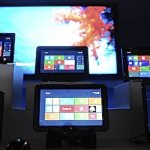
First in a series. Over the past few months I’ve seen several articles and forum postings negatively criticizing the design of Windows 8; from the flatness of the UI to design inconsistencies on the desktop. I’ve also seen articles asserting how difficult the operating system is to use because it’s not instantly intuitive.
While I think there are some valid concerns in these articles about Windows 8, I personally believe that most of what has been written is shortsighted. I hope to prove this over three articles.
10 Windows 8 apps for IT workers

When you look at the app offerings from Microsoft's Windows Store, the bulk is made up of programs targeting a casual audience. Games seem to be popular, for instance, making up a fifth of all apps currently listed in the store. While there is nothing wrong with playing a game of solitaire during a break or wait period, it doesn't help Microsoft sell the operating system to a professional audience.
Digging deeper, however, you will find decent apps that IT workers will come to love if they take the plunge and decide to work with apps under Windows 8. There is certainly no need for that unless the system is running Windows RT, as desktop programs provide you with a similar, and often even a better, feature set than store apps at the moment.
Despite Surface and Windows RT, Windows 8 Slate PCs get boost from Samsung
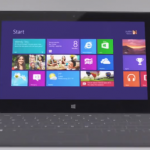
At IFA in Berlin, Germany yesterday, Samsung officially took the wraps off of its new Windows-powered slate PCs, the Series 5 and Series 7, which, like Samsung's Android tablets, incorporate a lot of modifications directly from the South Korean consumer electronics leader.
The Samsung Series 7 Slate is configured with an Intel Core i5 processor and 4 GB of RAM, with a 128GB SSD and has a suggested retail price of $1,199.
Why not just wait for Windows 8?

Microsoft is starting to make good on its Windows 8 Pro upgrade offer -- $14.99 for new PCs running the current version purchased between June 2 and January 31. Today, registration opened, for redemption when Windows 8 ships on October 26. PCs running Windows 7 Home Basic, Home Premium, Professional or Ultimate qualify for the upgrade, for which registration must be completed by February 28.
While the program arguably is a benefit to Windows 7 PC buyers, Microsoft also double-dips licensing revenue. For back-to-schoolers who can't afford or don't want Macs (or Chromebook, not to be forgotten), Windows 7 is the only real choice. In another universe -- perhaps far removed from this one -- Microsoft shipped Windows 8 in time for these shoppers. But not here. (Perhaps in yet another far-flung reality Microsoft shipped, keeping with Mayan prophesies, Windows 2012 EOW -- End of World -- edition.)
10 Windows 8 features you should know about

Windows 8 will make its public debut on October 26 and has been controversial ever since Microsoft first released information about the operating system to the public. What most can agree on is that Windows 8 is a shift away from the traditional desktop-orientated operating system towards a system that can be deployed on a wider variety of devices.
The 10 features listed here are but some of the benefits coming with Windows 8.
How much would you pay for Microsoft Surface?

End of summer typically means slower news cycle and with it more ridiculous rumors and positively pathetic punditry than ever. For example, the Apple Fanclub of bloggers and journalists squirms and squeals like a pack of hogs rolling in fresh mud -- they can't get enough of the Samsung trial under way in Northern California. Then there is Microsoft and the mini-revolt over the Surface tablet. Acer whines, Toshiba gives up Windows RT plans and everybody who is no one guesses just how low Microsoft will sell its tablet.
The problem is one of conflicting objectives. Apple's iPad sells faster than bacon cheeseburgers (let's keep to the pig metaphor shall we) during the County Fair. Total shipments topped 85 million in July -- in about 27 months. Today, IHS iSuppli put Apple's second quarter tablet market share at 69.6 percent globally -- that's up 44.1 percent, or 11.5 points, sequentially. Yeah, from 58.1 percent in Q1. (Pop those eyes back your head now.) Meanwhile, Windows starts essentially from zero. Microsoft can't close distance on iPad fast enough, and sure-fire, proven way is offering a compelling alternative for much less.
Recent Headlines
Most Commented Stories
© 1998-2025 BetaNews, Inc. All Rights Reserved. Privacy Policy - Cookie Policy.